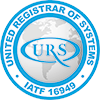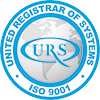The Benefits of Smart Glass for Agricultural Machinery
Technological innovation is transforming every sector, including agriculture, where machinery is rapidly evolving to meet modern challenges. One of the most promising advancements is the integration of smart glass into agricultural machines. This article explores the benefits of smart glass technology, highlighting how it enhances operator comfort, productivity, and safety in the agriculture sector
What is Smart Glass?
Smart glass, also known as electronic dimmable glass or switchable glass, is a type of glazing that can change its transparency when subjected to an electric current. This change allows the glass to transition from transparent to opaque, or to intermediate states, as needed, providing among other benefits, shading, glare reduction, and IR control. This type of glass is increasingly being used in vehicles, smart buildings, and now in agricultural machinery.
1. Enhanced Operator Comfort
One of the main concerns for farmers is maintaining a comfortable working environment, especially during long hours spent in the cabs of agricultural machines. Smart glass allows for the regulation of the amount of light and heat entering the cabin. For example, on sunny days, the glass can be darkened to reduce glare and limit heat buildup. This improves visibility by minimizing screen glare and intense reflections, helping to prevent operator fatigue and heat stress.

2. Increased Productivity
A comfortable operator is a more productive operator. By reducing eye strain caused by excessive light, dimmable glass enables the operator to focus more effectively on their work. This is particularly useful during precise tasks, such as harvesting or planting, where clear, unobstructed vision is essential. Unlike traditional shading solutions that can block visibility, dimmable glass allows for adjustable transparency without obstructing the view while still providing shading. Farmers can continue working longer under variable conditions—whether sunny, overcast, or at sunset—while enjoying the benefits of shading without sacrificing sightlines. This combination of comfort and visibility enhances overall productivity and efficiency.
3. Enhanced Safety
Safety is a priority in agriculture, where risks are numerous, especially when machines are used in challenging conditions. Smart glass enhances safety by reducing distracting glare that can impair visibility, while also eliminating the interruption that comes with drivers needing to adjust a mechanical shade or deal with its disruptive rattling noises. Additionally, when lighting conditions change suddenly—like when entering or exiting a tunnel—the glass can quickly adapt when utilizing external sensors, ensuring the operator always has a clear view. This is a significant advantage over traditional manual shades, which require physical adjustment and can create distracting noise, while smart glass provides seamless, hands-free control.
4. Reduced Energy Consumption
Although smart glass requires an electric current to function, it can actually help reduce the overall energy consumption of agricultural machinery. By limiting heat buildup inside the cabin, it reduces the load on air conditioning systems, which are often energy intensive. This reduction in energy demand can extend the lifespan of equipment and reduce operating costs, a significant advantage in an industry where profitability is crucial.
5. Sustainability and Environmental Responsibility
Finally, the adoption of smart glass aligns with a broader approach to sustainability. By reducing energy consumption and improving operational efficiency, this technology helps minimize the carbon footprint of farming operations. Additionally, by improving working conditions for farmers, it promotes more sustainable agriculture, where worker well-being is prioritized.
Gauzy’s PDLC and SPD Smart Glass Solutions: Cutting-Edge Innovation
Gauzy is the only smart glass technology company in the world that develops, manufactures, and markets both PDLC (Polymer Dispersed Liquid Crystal) and SPD (Suspended Particle Device) smart glass technology for lamination or application to existing windows by industry professionals. Each solution provides unique benefits, such as instant switching between clear and opaque states and full control over transparency levels. The PDLC glass can shift to an opaque state, ideal for temperature and glare control without blocking daylight, while SPD offers a darker tint for sunlight glare and heat reduction. These technologies can be used in curved glass and segmented for more precise control, allowing operators to adjust specific sections of the glass. Control can be handled manually from the dashboard or automatically via light sensors for enhanced ergonomics, optimizing both comfort and visibility.
For example, SPD technology can be implemented into glass roofs, or as a replacement for traditional sun visors on windshields, providing seamless glare reduction by darkening sections of the glass for dynamic shading. SPD has been widely adopted in passenger vehicle sunroofs because of its fast, adjustable tinting capabilities that reduce glare, block heat, and improve energy efficiency setting precedent for wider use in this segment. Alternatively, PDLC can be used in various spaces and applications in a driver’s cabin for its properties that allow for diffused natural light and IR reflection that contribute to a cooler, more visually comfortable cabin environment. Gauzy is the only supplier producing both SPD and PDLC solutions; by providing both technologies, Gauzy enables OEMs and operators to choose the best option to meet their specific design, functionality, and performance preferences.
Smart glass technology for agricultural machines is a game changer for OEMs and cabin suppliers. By enhancing operator comfort, productivity, and safety, smart glass not only meets the contemporary demands of farmers but also positions your products at the forefront of innovation. As agricultural challenges evolve, integrating smart glass into your designs will ensure your offerings remain competitive and relevant.
Now is the time to embrace these advancements. By adopting smart glass solutions, you can enhance your product portfolio and contribute to a safer, more sustainable working environment for operators. Don’t miss the opportunity to lead the way in transforming the future of agriculture.








